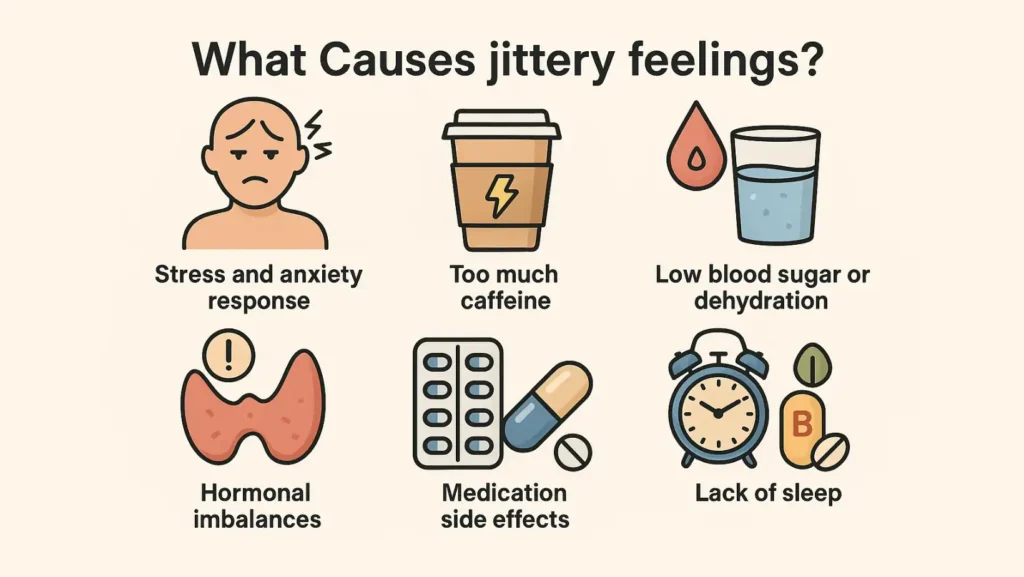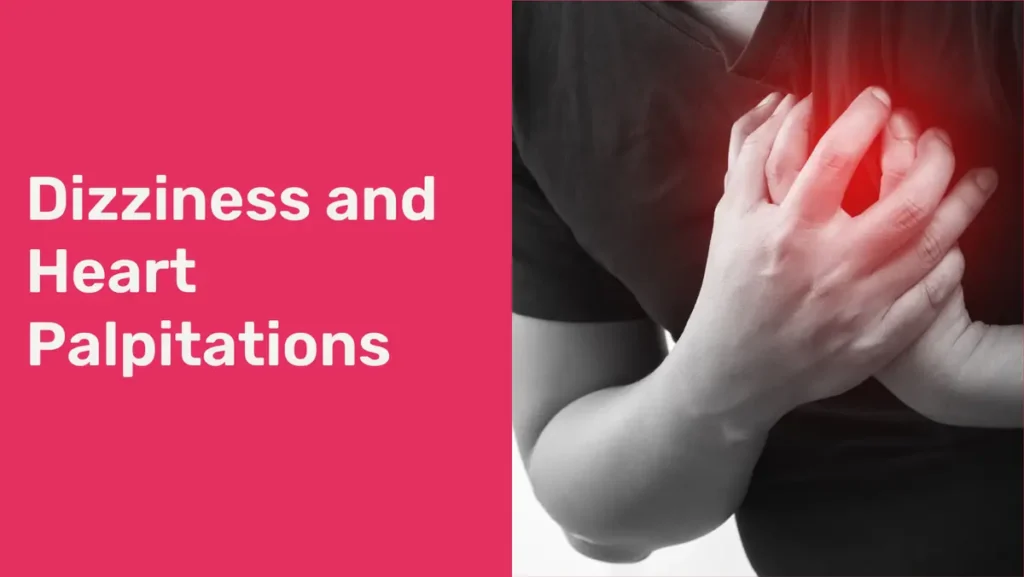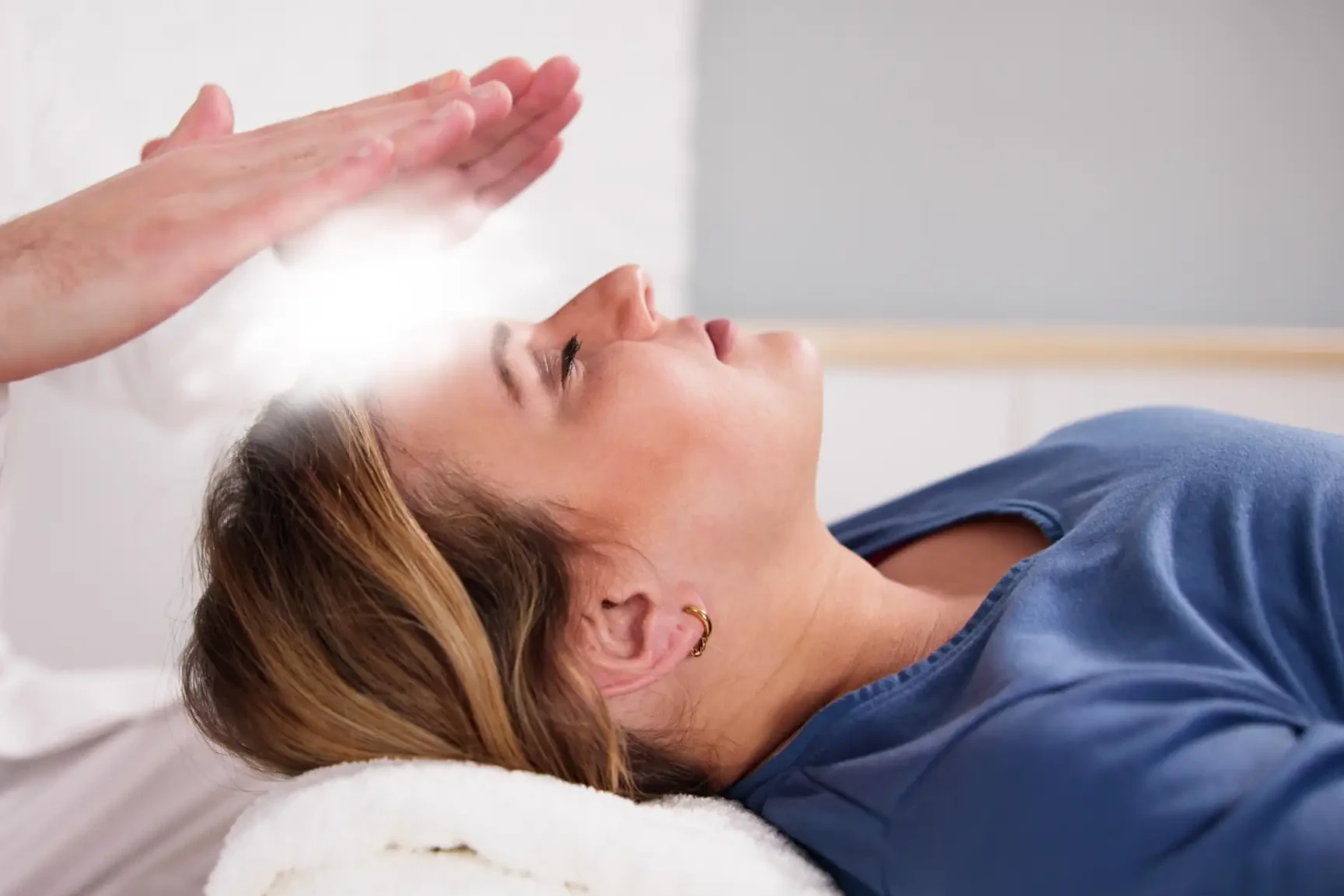Feeling jittery means your body feels shaky, wired, or on edge. You may notice trembling hands, a racing heart, sweat, or a weak legs feeling. Most of the time it is short lived.
Causes include caffeine, low blood sugar, stress hormones, poor sleep, medicines, and some medical issues. You can stop most episodes with simple steps. If symptoms repeat or come with chest pain, see a doctor.
Table of Contents
ToggleWhat Does “Feeling Jittery” Mean?
Definition and how it differs from anxiety or panic
You feel wired, shaky, and restless. Feeling jittery is a short physical reaction. Anxiety lasts longer and can include worry. Panic includes intense fear, breath trouble, and loss of control. Jitters often fade when the trigger leaves.
Physical sensations linked to jittery feelings
You may feel hands tremble, a fast heartbeat, sweaty palms, or a shaky voice. You might feel lightheaded or weak. These are normal body reactions to adrenaline or low fuel (blood sugar).
Why jitteriness often comes and goes suddenly
Adrenaline and other stress chemicals rise fast. That change happens within seconds. A drink with caffeine, a skipped meal, or a surprise can cause a sudden spike. Once hormones fall, the shaking fades.
What Causes Jittery Feelings?
Stress and anxiety response (fight-or-flight mode)
When you feel threatened, your brain signals your adrenal glands. They release adrenaline. Adrenaline makes your heart beat faster and your muscles tighten. This produces feeling jittery and restlessness.
Too much caffeine or energy drinks
Caffeine stimulates nerves and boosts adrenaline. Too much coffee or energy drinks can cause a wired, shaky feeling. Some people are more sensitive to caffeine and react strongly to small amounts.
Low blood sugar or dehydration
Low blood sugar causes shakiness, sweating, and a fast heartbeat. Dehydration raises heart rate and can make you dizzy and shaky too. Eating small snacks with protein helps quickly.
Hormonal imbalances (thyroid or cortisol)
An overactive thyroid speeds up your systems. It can cause tremors, heat, and weight loss. Stress that raises cortisol can keep you wired for long periods. Blood tests can find these issues.
Medication side effects or stimulant overuse
ADHD medicines, some weight-loss drugs, and certain cold medicines may cause tremors. Supplements and stimulants can do the same. Check new medicines if you start shaking after taking them.
Lack of sleep or irregular sleep cycles
Poor sleep raises your baseline stress. When you are tired, small triggers cause big reactions. Regular sleep reduces your chance of sudden trembling.
Nutrient deficiencies (magnesium, vitamin B12)
Low magnesium or B12 can affect nerve and muscle function. This can increase twitching and mild tremors. A balanced diet helps. If needed, a provider checks for deficiency.
Sudden Jittery Feeling: When It Strikes Out of Nowhere
What causes sudden jittery feelings without warning
A quick change in blood sugar, a surge of caffeine, or a sudden fright can trigger a sudden jittery feeling. Your body reacts in seconds. Keeping a short diary of what you ate helps find patterns.
Role of stress hormones in abrupt shakiness
Adrenaline and noradrenaline tighten muscles and speed the heart. They also raise alertness. This combination creates sudden shakiness and a racing heart that feels alarming.
When to suspect a medical or anxiety-related trigger
If shaking repeats or includes fainting, chest pain, or breath trouble, see a doctor. If worry and avoidance follow the episodes, an anxiety disorder may be involved. Tests will check heart rhythm and blood chemistry.
Feeling Jittery from Stress and Anxiety
How stress activates the body’s adrenaline response
When you face stress, your brain signals your body to prepare to act. That preparation releases adrenaline. Adrenaline gives quick energy and makes muscles ready. That energy often appears as shakiness.
Common symptoms of anxiety-induced jitteriness
Anxiety can cause trembling, heart racing, sweating, and fast breathing. You may also feel restless, irritable, or unable to sit still. These symptoms can last from minutes to hours.
Difference between anxiety and panic-related trembling
Anxiety grows gradually. Panic hits very fast and includes strong fear and a sense of doom. Trembling during panic tends to be stronger and is paired with other severe signs.
How to calm yourself during anxiety-related jitteriness
First, slow your breathing. Breathe in for four counts. Breathe out for six counts. Sip water. Sit and place both feet firmly on the floor. Use the 5-4-3-2-1 grounding method to pull focus to now. Use a snack with protein if you have not eaten. These steps reduce adrenaline quickly.
Feeling Jittery and Heart Palpitations
Why adrenaline causes a racing or pounding heart
Adrenaline makes the heart pump harder and faster. You feel each beat stronger. This is a normal short-term reaction to stress, caffeine, or low blood sugar.
Common links between palpitations and anxiety
Anxiety often causes palpitations. Palpitations then raise anxiety. This forms a loop. Breaking the loop with slow breathing and grounding stops both symptoms.
When to get checked for arrhythmia or heart issues
If palpitations come with chest pain, fainting, or breath trouble, seek urgent care. If tests show an irregular rhythm, you may need treatment. Your doctor can order an ECG or monitor.
Other Medical Causes of Jitteriness
Thyroid overactivity (hyperthyroidism)
Hyperthyroidism speeds many body processes. You may feel shaky, sweaty, and restless. Blood tests for TSH and thyroid hormones confirm the diagnosis.
Hypoglycemia (low blood sugar episodes)
Low blood sugar causes shaking, sweating, and hunger. If you have diabetes, missed meals or too much insulin can cause these episodes. Treat quickly with a fast sugar source.
Caffeine sensitivity or withdrawal
Some people are highly sensitive to caffeine. They get strong shaking even from one cup. Stopping caffeine suddenly can also cause shakiness and headache. Cut intake slowly to avoid withdrawal.
Hormonal changes during PMS or menopause
Shifts in estrogen and progesterone can change how your nerves and heart respond. Some people feel shakier during periods or menopause. Talk to your provider about options.
Side effects of ADHD or weight-loss medication
Stimulant medications raise alertness and heart rate. They can cause tremors. If symptoms start after medicines, your provider may lower the dose or switch drugs.
Symptoms That Often Accompany Jitteriness
Shaking hands or trembling voice
Your hands often tremble. Your voice might tremble when you speak. Both come from tense muscles and fast breathing.
Restlessness, nervousness, or irritability
Jitters make you feel on edge. Small annoyances feel bigger. You may move your legs more and pace.
Dizziness, sweating, or muscle weakness
Low blood sugar or adrenaline spikes cause dizziness and sweating. Your muscles may feel weak or shaky.
Difficulty concentrating or staying calm
Jitters cloud focus. Your mind races and you lose attention. Grounding exercises help bring you back to a single task.
Diagnosing the Cause of Jittery Feelings
Physical exam and lab tests to check hormones
A clinician checks pulse, blood pressure, and general exam. Blood tests can measure thyroid hormones and other signals. These tests catch common medical causes.
Blood sugar and thyroid function screening
Fasting blood sugar, HbA1c, and thyroid tests find low blood sugar patterns and thyroid overactivity. These tests are routine and informative.
Mental health evaluation for anxiety disorders
If tests are normal, clinicians check mood, sleep, and worry levels. A mental health evaluation finds anxiety disorders that can cause daily jitteriness.
Identifying lifestyle or caffeine triggers
Keep a short log for one week. Write when you feel jittery and what you ate. Note coffee, sleep, and stress. This will show patterns and triggers.
How to Stop Feeling Jittery
Deep breathing and relaxation techniques
Try box breathing. Inhale four counts. Hold four. Exhale four. Repeat five times. Progressive muscle relaxation helps. Tense a muscle group, then release. These techniques slow your heart and cut tremors.
Rehydration and balanced nutrition
Drink water and eat a small snack with protein. A banana plus a handful of nuts works well. Balanced eating prevents blood sugar dips that cause shaking.
Limiting caffeine and stimulants
Reduce daily caffeine slowly. Swap some drinks for water or herbal tea. Avoid energy drinks altogether. Fewer stimulants mean fewer jittery episodes.
Grounding exercises to reduce anxiety
Use the 5-4-3-2-1 method. Name five things you see. Name four you can touch. Continue to one you can taste. This anchors you in the present.
Medications and therapy options if needed
If anxiety causes daily feeling jittery anxiety, therapy and sometimes medication can help. Beta blockers ease heart pounding in some cases. Talk to a clinician for safe choices.
Lifestyle Tips to Prevent Jittery Episodes
Maintain a regular sleep schedule
Sleep at the same times. Aim for seven to nine hours. Sleep reduces baseline stress and lowers the chance of sudden shakiness.
Avoid energy drinks and limit caffeine intake
Energy drinks often contain high caffeine and other stimulants. Avoid them. Limit coffee and soda to lower your risk of feeling jittery.
Eat balanced meals with protein and complex carbs
Include protein at each meal. Choose whole grains over sugary snacks. Regular meals keep blood sugar stable and reduce shakiness.
Practice mindfulness or meditation daily
Even five minutes a day of quiet breathing reduces baseline stress. Over weeks, you will feel fewer sudden episodes.
When to See a Doctor
Persistent jittery feelings without clear cause
If shaking happens often with no clear trigger, make a doctor visit. Tests can find thyroid, blood sugar, or heart problems.
Associated heart palpitations or chest pain
If jitters come with chest pain or fainting, seek care right away. These signs can indicate a heart problem.
Signs of thyroid or blood sugar imbalance
If you lose weight, feel hot, sweat more, or feel very hungry and shaky, ask for thyroid and blood sugar testing.
FAQs
Why do I suddenly feel jittery for no reason?
A quick spike in adrenaline, a drop in blood sugar, or caffeine can cause a sudden jittery feeling. Track food, drinks, and sleep to find triggers.
Can anxiety cause constant jittery feelings?
Yes. Ongoing anxiety can produce daily feeling jittery anxiety. Therapy, breathing exercises, and lifestyle change lower symptoms over weeks. Medication helps when needed.
How does caffeine trigger jitteriness?
Caffeine raises adrenaline and stimulates nerves. This increases heart rate and muscle tension. Sensitivity varies by person and dose. Reducing intake lowers the risk.
What foods calm jittery nerves?
Foods with magnesium, protein, and fiber help. Almonds, bananas, yogurt, and whole grains calm nerves and stabilize blood sugar. Avoid sugary snacks that cause crashes.
Can dehydration make you feel shaky and anxious?
Yes. Dehydration reduces blood volume and raises heart rate. That can cause lightheadedness, shakiness, and anxiety. Drink water and rehydrate slowly.
Is jitteriness a symptom of heart problems?
Sometimes. If jitteriness includes chest pain, fainting, or severe shortness of breath, seek urgent care. Tests can rule out arrhythmia or other heart issues.
How long does caffeine-induced jitteriness last?
It varies. Effects often last two to six hours. The exact time depends on dose and your metabolism. Reducing intake shortens episodes.
How to stop feeling jittery fast at home?
Sit, breathe slowly, drink water, and eat a small protein snack. Use grounding techniques. These actions lower adrenaline and restore calm quickly.
When is jitteriness a sign of a thyroid issue?
If you also lose weight, feel hot, or sweat more, request thyroid tests. Blood tests for TSH and thyroid hormones confirm thyroid issues.
Does magnesium help reduce jittery feelings?
Yes. Magnesium supports nerve and muscle health. A balanced diet or modest supplements can reduce mild tremors. Speak with a doctor before high-dose supplements.
Can medication or supplements make you jittery?
Yes. Stimulant medications and some supplements cause tremors. If shaking starts after a new product, stop it and consult your prescriber.
About The Author

Medically reviewed by Dr. Chandril Chugh, MD, DM (Neurology)
Board-Certified Neurologist
Dr. Chandril Chugh is a U.S.-trained, board-certified neurologist with expertise in diagnosing and managing neurological disorders, including migraines, epilepsy, Parkinson’s disease, and movement disorders. His clinical focus includes evidence-based neurological care and patient education.
All content is reviewed for medical accuracy and aligned with current neurological guidelines.






